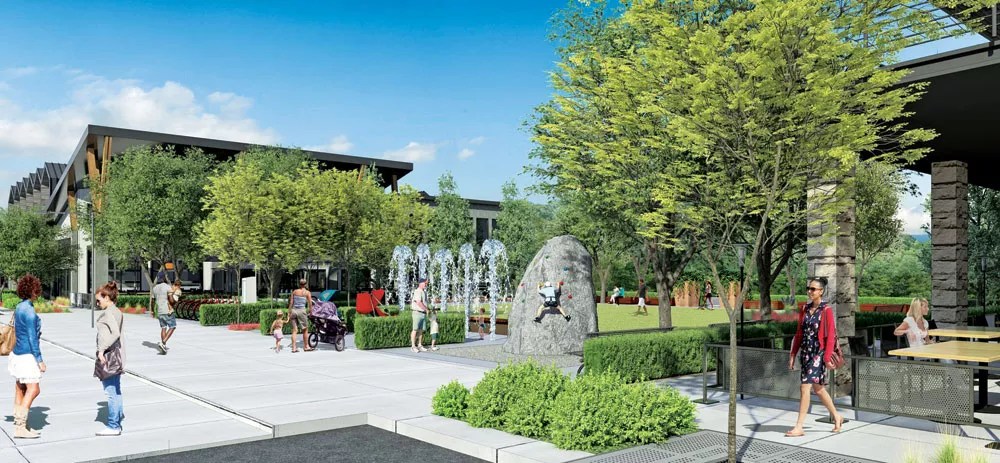
parkhillcommons.com

Audio By Carbonatix
I’m listening to the public hearing regarding a trade of land, the essence of which is whether a pocket park on a commercial street in northern Park Hill will be located on the west side of the 2800 block of Fairfax Street or on the east side. The real story, however, revolves around the city’s role in creating a split in the surrounding neighborhood favoring gentrification and ignoring the value of community.
The city purchased a lot on the west side of Fairfax, told the neighborhood it would build a park on the lot, and negotiated a trade for the site on the other side of the street in the middle of a block-long redevelopment, Park Hill Commons, that will include several restaurants fronting the park.
The councilman who represents the neighborhood agreed to the swap in private meetings with the developer and did not include any residents. The neighbors found out about the trade when the developer showed up at the headquarters of Greater Park Hill Community Inc., which is on the block, to inquire if the headquarters was available for sale.
Fairfax has always been a sleepy little commercial street built when a grocery store could be 5,000 square feet and everybody knew the butcher. As big public and private investment money created freeways, big stores and shopping centers, the street became almost totally dependent on its neighbors.

One look at the proposed pocket park.
parkhillcommons.com
The area has always been a place where people hung out on the street. As a teenager in the 1950s, I had a friend who worked at the local filling station. A bunch of us used to gather on summer evenings to smoke and exchange our latest truths. We sat on a curb, leaning against a fence on the north side of the filling station.
As a neighborhood activist, I attended meetings and work sessions at the office of the Greater Park Hill Community, the registered neighborhood organization, on that block. There were always a bunch of un-white neighbors hanging out near the corner liquor store. It is a familiar scene in my life. White people have been moving in to snap up local housing for a song or what the residents believed to be a hell of a lot of money.
The new residents see the street as a terrifying swamp in the middle of their new lives. The new folk are citing numerous gunshots in the middle of the night as evidence that the place should be torn to the ground and urban-renewed with stores with recognizable, corporate names and hot stuff to buy.
The locals have considerable doubts that this new park, wedged into a commercial development flanking trendy restaurants, would welcome the people who historically have used the street as a public place where they nurtured their community. None of the actions of the city have managed to convince the locals that the park won’t become the plaza for high-end restaurants and trendy shops, and they will be as welcome as they are to the city.
The city created this split, chose sides and treated the long-term neighbors as ungrateful recipients of the best thing since sliced bread. Denver City Council voted unanimously to move the bill to final approval last month.
The park, which was presented as being begun as soon as the bill was signed, has already been delayed until 2021.
The community that existed is a loss. The Department of Parks and Recreation can carve another notch on its record of communities destroyed by its own arrogance.
Tom Morris is a longtime neighborhood leader and civic activist. Westword occasionally publishes op eds on subjects of interest to metro Denver residents. If you’d like to submit one, send it to editorial@westword.com.